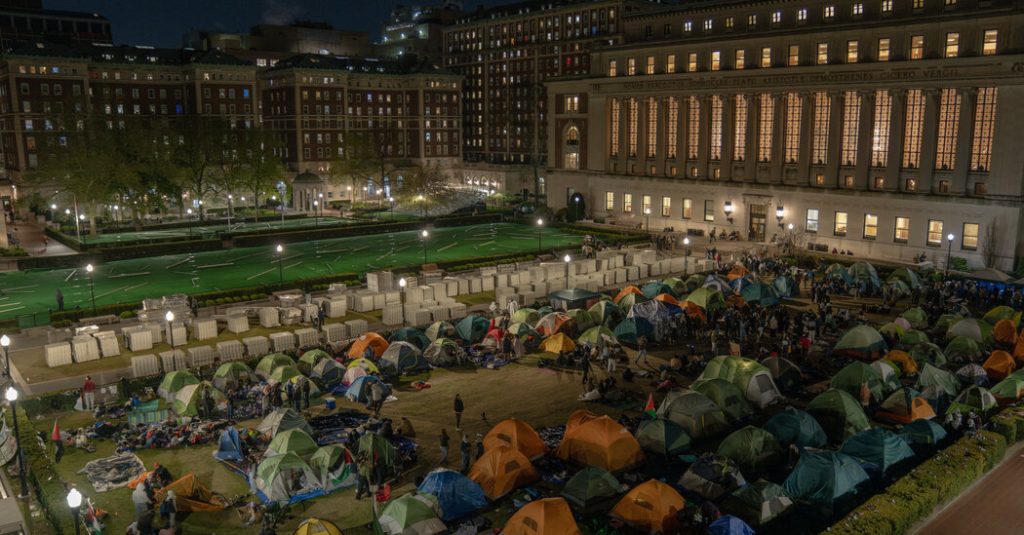Representative Ilhan Omar of Minnesota visited a Columbia University protest encampment against Israel’s actions in Gaza, where her daughter was among the students arrested. During her visit, she suggested that some Jewish students supported genocide while rejecting the argument that the protests were antisemitic. Other politicians, including Republican House Speaker Mike Johnson and Representative Jared Moskowitz of Florida, also visited the protest sites with contrasting views, further highlighting the intersection between American politics and the protests.
The visits by various politicians to college campuses with pro-Palestinian student protests indicate the entanglement of the demonstrations with American politics. The protests intensified following a police crackdown at Columbia, attracting a mix of officials who voiced both support and condemnation. The involvement of national figures turned what could have been a minor issue into a major theme in the ongoing conflict in Gaza. The presence of these politicians underscored the divisive nature of the protests and the partisan stances taken by elected officials.
Ilhan Omar’s remarks suggesting that some Jewish students were pro-genocide received backlash, with critics accusing her of promoting blood libel. The Anti-Defamation League condemned her comments, while CNN questioned Senator Bernie Sanders’ stance on the issue. Omar defended her statement by mentioning reported comments from Palestinian and Arab students at the University of Massachusetts, illustrating the challenges of maintaining a balanced approach to the complex situation in the Middle East.
The campus visits by politicians began with a group of pro-Israel Democrats followed by House Republicans who urged President Biden to summon the National Guard and revoke funding for universities where protests were escalating. The division between peaceful student encampments with Jewish participants and demonstrations with antisemitic undertones further complicated the responses of politicians and officials. The escalating conflict on college campuses mirrored the broader political tensions surrounding the Israel-Palestine issue.
The events leading up to the protests, including President of Columbia University Minouche Shafik’s testimony before a congressional panel on antisemitism and the subsequent police crackdown on a pro-Palestinian encampment, sparked a chain of protests across campus. The involvement of prominent members of Congress and public figures amplified the intensity and visibility of the demonstrations. The visits by both pro-Israel and pro-Palestine politicians highlighted the deep-seated political divisions and ideological differences surrounding the conflict.
In conclusion, the pro-Palestinian student protests at various college campuses in response to Israel’s actions in Gaza have become deeply intertwined with American politics. The visits by politicians from both major parties reflect the polarizing impact of the protests and the broader international conflict. The comments made by officials, including Ilhan Omar’s remarks, underscore the challenges of addressing complex and sensitive issues relating to antisemitism and the Israel-Palestine conflict. The protests and the subsequent political responses highlight the need for a nuanced and inclusive approach to engaging with diverse perspectives on this contentious and long-standing conflict.


